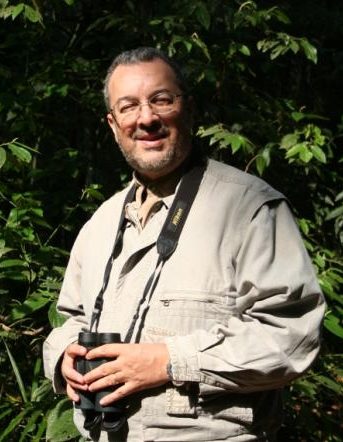This July and August, we’re running a special series of blog posts profiling AOS members around the world, in honor of the recent change to AOS’s bylaws eliminated any reference specifying the Western Hemisphere as the Society’s geographic sphere of influence. This week, meet Luiz Dos Anjos, a professor at a university in Brazil.
What’s your current affiliation and title?
I am an Associate Professor at the State University of Londrina in Brazil. I received my doctoral degree from the Federal University of Paraná in 1992, and also spent one year of sabbatical at the University of Florida in 2009, where I worked with Robert Douglas Holt.
What are you working on right now?
I am doing research and teach at the State University of Londrina. I teach a class on animal ecology for undergraduates and classes on ornithology and the biological dynamics of forest fragments for graduate students. At the moment I am involved in five research projects. The largest one is on monitoring forest bird communities at ten sites in two large nature reserves. I have worked on this for ten years, and my intention is to complete fifteen years of monitoring.
On a typical day, I advise master’s and doctoral degree students, prepare and teach classes, and work on analyzing and writing up my field data. My field work is now concentrated in spring (September to December in the southern hemisphere), when I stay for four non-consecutive weeks on the field.

When did you join AOS, and why did you decide to join?
I joined AOS [then the AOU] in 1996. To me, the AOU represented the opportunity to learn more about ornithology, in particular about how to develop research projects on birds. I have attended several meetings of the AOU, in Veracruz, Portland, Jacksonville, and Washington. At all these meetings, I have learned a great deal about birds, and I feel it was important for my career. Another point is the journals, The Auk and The Condor. Although I haven’t been published in an AOS journal, I have learned a lot from the suggestions and recommendations of reviewers on submitted manuscripts.
What do you see as the best benefit of being an AOS member?
I have maintained contact with colleagues from North America and other countries for years, and it has been important to me. This opportunity to share experiences has been the key point. And I enjoy the friendly meetings, where I can have an easy talk with people that share the same passion for birds.
